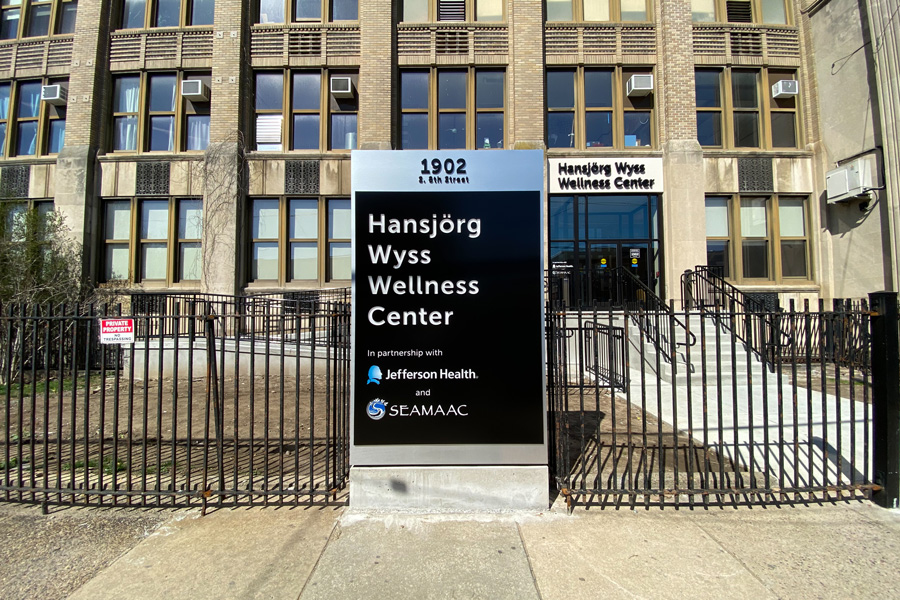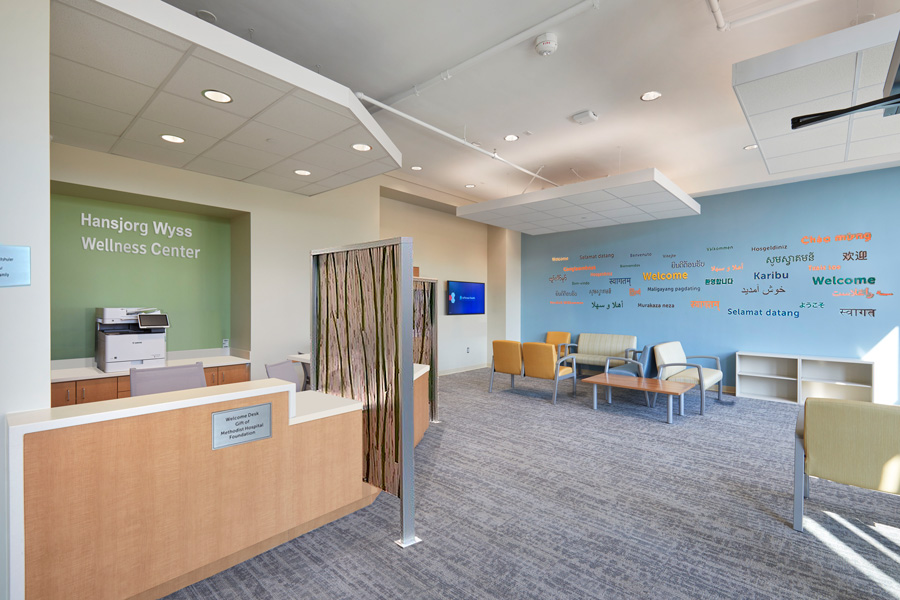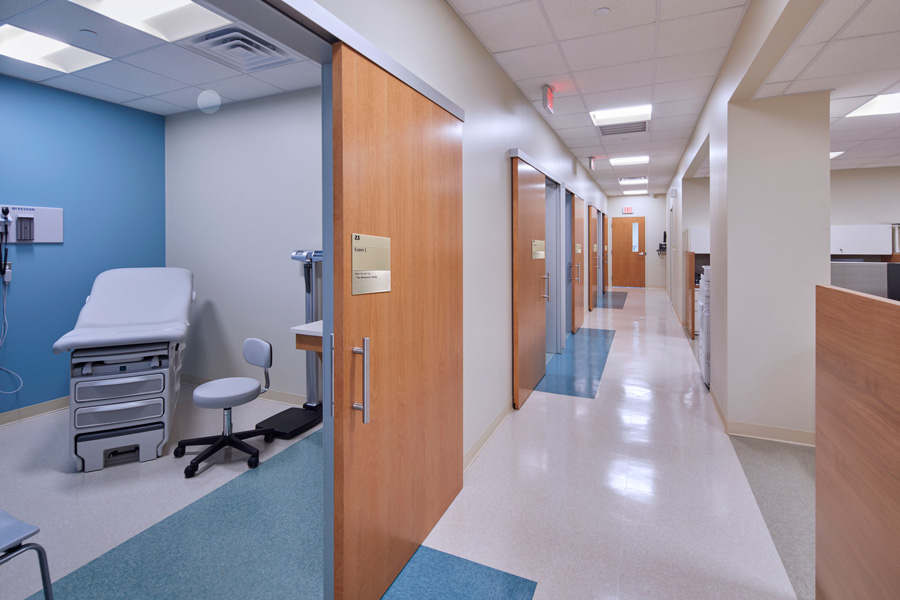Now Open at Bok, a New Health Center for Philly’s Immigrant and Refugee Population
Run by Jefferson Health and SEAMAAC, the Hansjörg Wyss Wellness Center offers clinical care and social services to patients regardless of their citizenship or health insurance status.

The Hansjörg Wyss Wellness Center is now open inside the Bok Building in South Philly. Photograph courtesy of Jefferson Health
Earlier this month, the Bok Building became home to a new health hub dedicated to serving the refugee and immigrant population in South Philly and beyond. The Hansjörg Wyss Wellness Center — a program of Jefferson Health’s Philadelphia Collaborative for Health Equity and a partnership between Jefferson’s department of family and community medicine and the Southeast Asian Mutual Assistance Associations Coalition (SEAMAAC) — provides the community with full-spectrum primary care and social services, plus wellness, art and education opportunities.
The facility, which was made possible by a $3.1 million gift from the Wyss Foundation and other benefactors, marks an important step in reducing health-related disparities for immigrants and refugees. Though immigrants represent 14.8 percent of the city’s population (as of 2016) and hundreds of refugees resettle in Philadelphia each year, both groups face barriers when it comes to accessing quality medical care and services. In the Kaiser Family Foundation’s analysis of the 2018 American Community Survey, 23 percent of lawfully present immigrants — that is, legal permanent residents, refugees and asylees — and 45 percent of undocumented immigrants were uninsured, compared to approximately nine percent of naturalized citizens. In 2019, 14 percent of discharges from Jefferson’s Methodist Hospital emergency department in South Philadelphia were uninsured, and nearly 23 percent of them were immigrants, according to Jefferson Health. Additionally, immigrants are less likely to see a doctor on a regular basis, as barriers to culturally competent care continue to exist in the field.

Inside the Hansjörg Wyss Wellness Center. Photograph courtesy of Jefferson Health
The center works to improve matters by administering whole-person primary care for newborn through elderly patients as well as specialty services like ob-gyn care and COVID-19 vaccines, says Jessica Deffler, a Jefferson physician and the center’s medical director. It will also host training for students of the Sidney Kimmel Medical College and residents of Jefferson’s department of family and community in providing culturally competent care. Staff from local nonprofit SEAMAAC will offer comprehensive social services, like domestic violence assistance, literacy and ESL educational programs, employment aid and mental health support. There is also enough space for users to safely gather, socialize, and “make the center their wellness and community home,” says Deffler. As access is at the heart of the center’s mission, all offerings will be provided regardless of patients’ health insurance or citizenship status.

A look inside a treatment room in the Hansjörg Wyss Wellness Center. Photograph courtesy of Jefferson Health
Marc Altshuler, clinical leader of the center and an associate professor and physician of family and community medicine at Jefferson, sees the center as an extension of Jefferson’s Center for Refugee Health, which he helped launch in 2007 and now directs. That facility, according to Jefferson, is the largest medical provider of refugee health care in Philadelphia and is recognized by the CDC as a “Center of Excellence in Refugee Healthcare.” Altshuler is also a founding member of the Philadelphia Refugee Health Collaborative, a partnership established in 2010 among the city’s academic medical centers and refugee resettlement agencies that offers medical assistance to newly arrived refugees.
“If you want to address the disparities that patients face, you have to bring health care into the communities and not make the communities come to the health-care provider.”
While these initiatives have helped the city’s refugee population, Altshuler says, the Hansjörg Wyss Wellness Center aims to care for the total immigrant community, not just refugees, especially in a neighborhood whose residents are largely of Southeast Asian descent. “This new center allows us to bring comprehensive health care not only to an underserved community, but in a setting where they feel comfortable accessing that care — their own neighborhood,” he says. “If you want to address the disparities that patients face, you have to bring health care into the communities and not make the communities come to the health-care provider.”
Altshuler says the next goal is to see the center become a federally qualified health center, which would allow it to accommodate thousands of patients per year through government funding. While designation is likely to take several years, Altshuler is hopeful it will be bestowed.
The Hansjörg Wyss Wellness Center is composed of 12 examination rooms, with Altshuler, Deffler, and a newly hired nurse practitioner currently providing clinical care. Patients can be seen at the facility from 8 a.m. to 5 p.m. Monday through Friday, with evening appointments forthcoming. Educational and community activities are scheduled to run weeknights and weekends.

Philadelphia magazine is one of more than 20 news organizations producing Broke in Philly, a collaborative reporting project on solutions to poverty and economic mobility in the city. Read all our reporting here.


